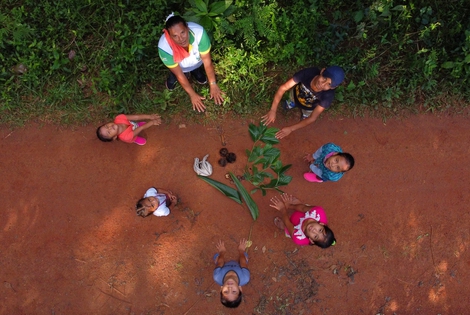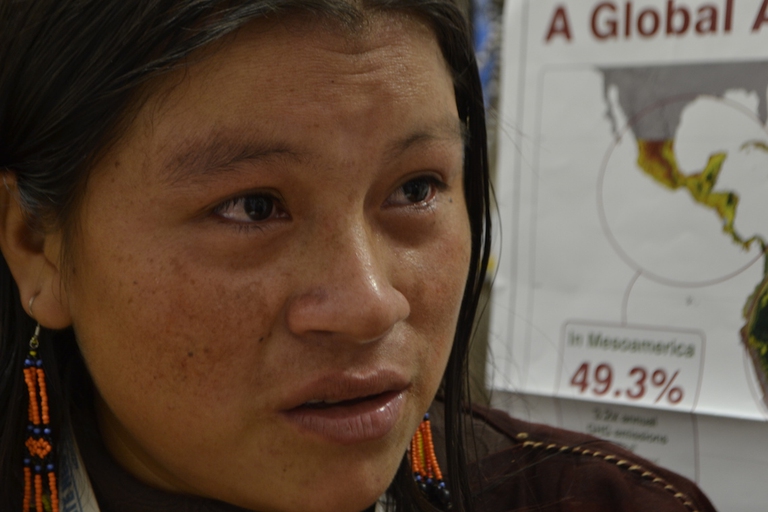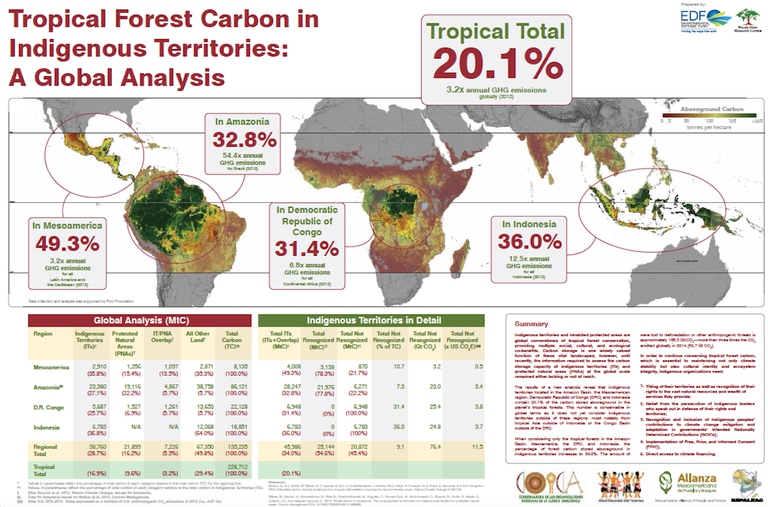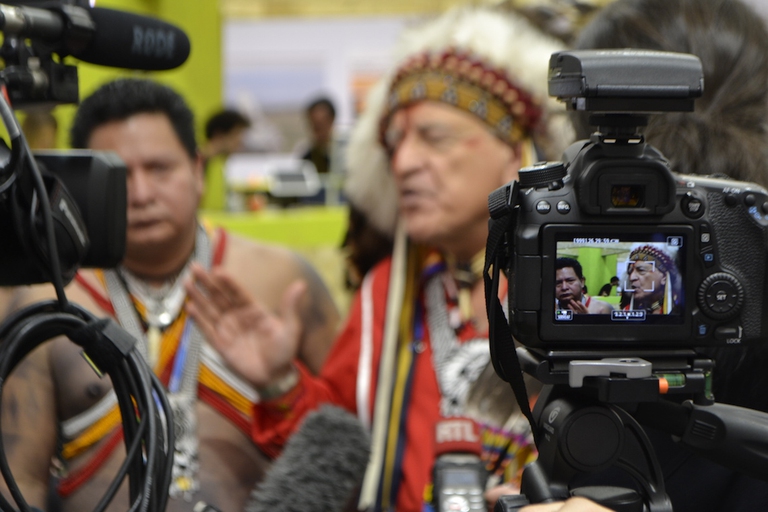
The Amazon became an alternative classroom during the pandemic. Now, the educational forest in Batraja, Bolivia, lives on to teach children and adults the value of nature.
Il papà di Diana Rios è stato fatto a pezzi perché difendeva la foresta. Anche lei rischia la vita, ma non ha rinunciato a partecipare alla Cop 21.
Diana Rios is 23 years old. She has 2 children. Long, black hair frames her face marked by pain. A few tears stream down her face. She lives in an isolated village in the Amazon along the border between Peru and Brazil. Her father, Jorge, was killed last year because he was committed to safeguarding the forest in the areas populated by the Ashéninka Community of Alto Tamayo-Saweto.
She’s also received death threats: some told her she wasn’t going to survive the five-day canoe journey to return home after attending COP21 at the end of 2015. “I’m afraid, but I went to Paris to honour my father. I went so that his sacrifice won’t have been in vain. I went for the future of my children”.
Diana, what happened to your father?
The entire story would take months to tell. In 2003 we started denouncing the deforestation of our lands, perpetrated by individuals as well as big companies. The phenomenon is without end since the timber industry is heavily subsidised, as is mining. Companies receive concessions for certain plots of land but my father found out that some cut down trees also in areas exclusive to us. He denounced this fact. Then he was killed.
When did this happen?
The 1st of September 2014, just over two years ago. It’s very hard for me to talk about this. His body was cut into pieces: I wasn’t strong enough to go and see, my mother told me.
Did you think about running away?
Never, quite the opposite. My mother, after she saw my father’s body, asked us to continue his battle. “Because we are the guardians of the forest,” she said.
Did you appeal to the justice system?
Our people’s voice goes unheard. We’ve talked, explained, implored. The only thing we got is the presence of a policeman in our village. Just one, which solves nothing.
What about the government?
Peru’s former Environment Minister, Manuel Pulgar-Vidal, said he was committed to protecting indigenous people. I wonder how he could say something like that, while we’re dying to defend our land.
What did you expect from COP21?
I hoped it would be the right place to have our voice heard, and show the world our commitment to fighting climate change. Back home, we’re frightened of living. But we want everybody to understand that our lands can provide us with everything we need to live whilst contributing to safeguarding the environment, as long as our security is guaranteed and the word “justice” means something.
Siamo anche su WhatsApp. Segui il canale ufficiale LifeGate per restare aggiornata, aggiornato sulle ultime notizie e sulle nostre attività.
![]()
Quest'opera è distribuita con Licenza Creative Commons Attribuzione - Non commerciale - Non opere derivate 4.0 Internazionale.
The Amazon became an alternative classroom during the pandemic. Now, the educational forest in Batraja, Bolivia, lives on to teach children and adults the value of nature.
A special report from the Yuqui territory delves deep into the dreams, challenges, joys and sadness of one of Bolivia’s most vulnerable indigenous groups.
The Yuqui people of the Bolivian Amazon fight not only to survive in the face of settlers, logging and Covid-19, but to preserve their culture and identity.
Jair Bolsonaro is accused of crimes against humanity for persecuting indigenous Brazilians and destroying the Amazon. We speak to William Bourdon and Charly Salkazanov, the lawyers bringing the case before the ICC.
Our species took its first steps in a world covered in trees. Today, forests offer us sustenance, shelter, and clean the air that we breathe.
Activists hail the decision not to hold the 2023 World Anthropology Congress at a controversial Indian school for tribal children as originally planned.
Autumn Peltier is a water defender who began her fight for indigenous Canadians’ right to clean drinking water when she was only eight years old.
The pandemic threatens some of the world’s most endangered indigenous peoples, such as the Great Andamanese of the Andaman and Nicobar Islands in India.
The Upopoy National Ainu Museum has finally opened. With it the indigenous people of Hokkaido are gaining recognition but not access to fundamental rights.










